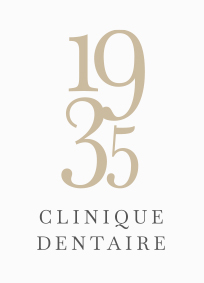Although baby teeth usually appear at six months of age, they begin to fall out around 5-6 years of age. This age may vary from child to child. Baby teeth result from the growth of permanent teeth below the baby teeth and can only fall out when the jaw is big enough to accommodate them.
Find out everything you need to know about losing baby teeth in this article.
Why do we have baby teeth?
By age three, a child usually has 20 primary teeth: 8 incisors, 4 canines and 8 molars. The main function of baby teeth is to make room for permanent teeth. Baby teeth stimulate the growth of the jaws and guide the proper development of the permanent teeth.
Baby teeth are very important for a child’s development, but they also play other important roles.
Baby teeth help with chewing
Baby teeth allow the child to chew and therefore differentiate between foods.
Baby teeth development also leads to a progressive adaptation of the jaw joints when parents introduce solid foods.
Baby teeth improve speech
Baby teeth have hidden benefits for most people. They help your child to improve their speech day after day.
In addition, the tongue and cheeks rely on the baby teeth to pronounce consonants. In other words, baby teeth are what will help your child speak.
Baby teeth shape the face
The first teeth that grow in your child’s mouth shape their face.
In addition to the jaw development that occurs, baby teeth also help the faucial pillars grow and assist the child in learning to swallow like an adult.
What are the different stages of losing baby teeth?
Are you wondering how many baby teeth a child should lose? The answer is simple: all baby teeth normally fall out to make room for permanent teeth. We emphasize the word “normally”, because in rare cases, some teeth stay in place longer than expected. For more information, you can contact the professionals at Clinique Dentaire 1935.
Stage 1: Appearance of baby teeth
Your child’s baby teeth will usually all appear in the mouth between 6 months and 3 years of age.
These teeth will serve the functions discussed above until about 6 years of age.
Stage 2: Loss of incisors
In most children, the upper and lower incisors will fall out naturally between the ages of 6 and 8.
As a reminder, the incisors are the teeth located at the front of the dental arches. They play an extremely important role, particularly in the appearance of the face and the smile.
Stage 3: Loss of canines
Located in the oral cavity, the 4 canines in your child’s mouth generally fall out around the age of 11.
They are used to shred food and improve the appearance of the corners of the mouth.
Stage 4: Loss of molars
Around the age of 12, your child will lose his 4 molars, located at the very back of the mouth.
These teeth are also used to shred food.
Stage 5: Wisdom teeth coming in
By the time your child is 18 years old, they will no longer have any baby teeth in their mouth (except in rare cases). The 4 wisdom teeth that will stay with them for the rest of their lives will come in instead.
Can losing a baby tooth be serious?
Losing baby teeth is not painful in most cases. The tooth will move slowly at first, then eventually fall out on its own as the underlying tooth grows in.
However, sometimes the loss of a baby tooth can cause complications for the child. Let’s look at this in more detail.
A normal stage of life
Is your child’s first tooth falling out? This can be confusing for them. Even if the loss doesn’t cause any physical pain, not helping your child understand what’s going on can be mentally upsetting. Be sure to soothe your child’s worries about losing baby teeth.
Above all, make sure your child doesn’t pull a tooth out by force if it isn’t ready to fall out. This will help your child become familiar with the sensation of a moving tooth.
Complications can occur
Transitioning from temporary to permanent teeth is a crucial time when dental hygiene is extra important. New teeth must be protected from potential dental cavities.
Generally, by teaching your child good oral habits, everything will go smoothly. However, losing baby teeth can sometimes not go as planned:
- Baby teeth getting knocked loose
- Premature loss of baby teeth
- Baby tooth cavities
For all of the above reasons, it is recommended that you contact your dentist since major complications could turn into a dental emergency.
As children develop at different rates, delayed or premature loss of baby teeth may not be a problem. For impacted or decayed teeth, you should contact your practitioner as soon as possible. A tooth extraction may be recommended in some cases.
Consult the dentists at Clinique Dentaire 1935 about your child’s baby teeth
As you can see, the loss of your child’s baby teeth is a normal process that in most cases will not lead to major concerns.
However, unforeseen events can occur that could impact your child’s oral health.
To make sure everything is fine, or if you have any questions about baby teeth, contact our dentists. They will be happy to answer all your questions.
